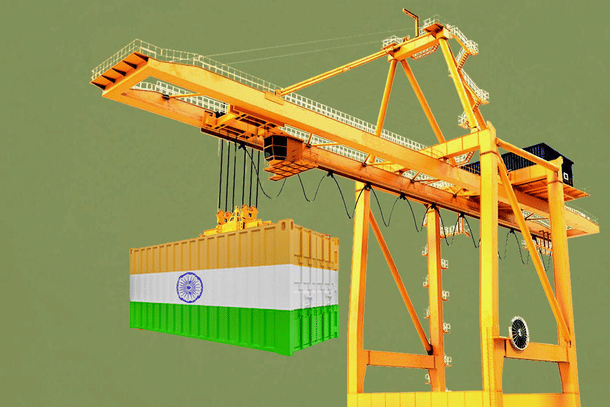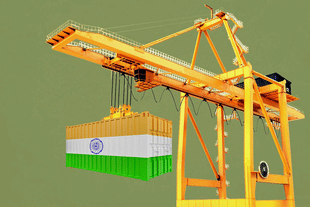News Brief
US's Aggressive Tariff Surge On Chinese Products Brings Good News For Indian Export Opportunities: Here's How
Bhuvan Krishna
May 16, 2024, 01:45 PM | Updated 01:45 PM IST
Save & read from anywhere!
Bookmark stories for easy access on any device or the Swarajya app.


US President Joe Biden's recent decision to impose high tariffs on various Chinese products, including electric vehicles (EVs), batteries, and medical supplies, is expected to benefit Indian exporters, according to a report from Livemint.
On Tuesday (14 May), the White House announced a substantial hike in tariffs: Chinese EVs now face a 100 per cent tariff, up from 25 per cent; tariffs on solar cells have doubled to 50 per cent and duties on certain steel and aluminum products have tripled to 25 per cent.
Additionally, tariffs on non-lithium-ion battery parts from China have increased from 7.5 per cent to 25 per cent. Previously untaxed Chinese items such as face masks, critical minerals, and ship-to-shore cranes are now subject to a 25 per cent tariff.
These tariffs are expected to impact around $18 billion worth of Chinese imports.
"This will certainly create opportunities for Indian products in developed markets. The US is a key export market for many Indian goods, including diamonds, medical devices, agricultural products, refined petroleum, rice, textiles, and apparel," stated a senior government official who preferred to remain anonymous.
The increased tariffs on Chinese products such as face masks, syringes, needles, medical gloves, and natural graphite could boost Indian exports of these items. By enhancing production and exports of these sought-after products, India could significantly increase its presence in the US market.
Ajay Sahai, Director General of the Federation of Indian Export Organisations (FIEO) has emphasised the opportunities for Indian medical products, including PPE kits, syringes, gloves, and other items, to enter the US market. India, being the second-largest producer of PPE kits, masks, face masks, syringes, needles, and medical gloves, is well-positioned to take advantage of this opportunity.
In March 2024, exports of medical plastics from India, including syringes, catheters, cannulae, and spectacle lenses, increased by 10.4 per cent, reaching $48.7 million from $44.1 million in March 2023.
While India is not a leading manufacturer of all the Chinese items now facing higher tariffs — China is the world's largest EV manufacturer, for example — there are promising areas for Indian exports.
Sahai noted that India could potentially expand its manufacturing capacities in certain segments to capitalise on the opportunities created by the US tariffs on Chinese products, making them less competitive.
He also highlighted potential export opportunities in aluminium and steel.
However, experts also warned of the potential for Chinese goods to be diverted to other markets, including India, as the US and EU reduce their imports of Chinese EVs due to the higher tariffs.
In FY24, Indian exports to the US slightly decreased by 1.32 per cent, totalling $77.5 billion compared to $78.54 billion in 2022-23. Imports from the US also declined by approximately 20 per cent, amounting to $40.8 billion, according to commerce ministry data.
Bhuvan Krishna is Staff Writer at Swarajya.




